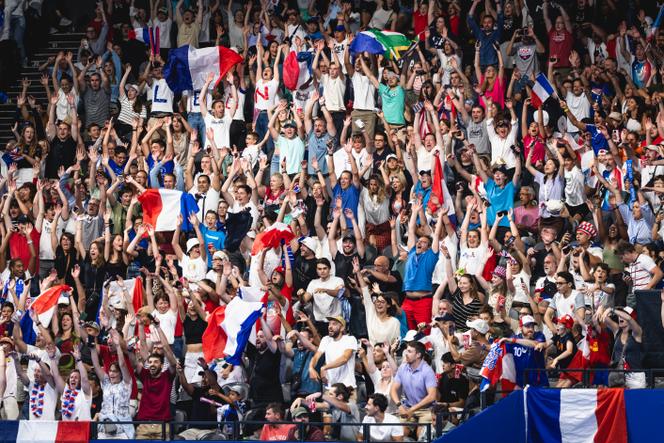


Whether it's Aya Nakamura singing with the Republican Guard on the Pont des Arts during the Olympic Games opening ceremony on Friday, July 26, Léon Marchand's 200-meter butterfly and 200-meter breaststroke finals, or the French volleyball team's semi-final against Italy on Wednesday, August 7, each time, the public pulsates in unison. In a stadium holding its breath or in front of a television screen, often with others, the emotion is palpable, sometimes even causing real shivers. Of course, not everyone gets "goosebumps," but how can we explain this phenomenon?
First, it's important to distinguish these so-called emotional shivers, caused by pleasure or fear, from those triggered by a difference in temperature. However, at present, there is little research on this topic. These shivers are a strong emotional response to specific stimuli such as a concert, a movie, great pleasure, or a sporting event. A review of studies from 2024 notes brain correlations between these so-called psychological shivers and the reward circuit.
"Little is known about what triggers emotional shivers except that they involve the activation of the reward circuit and the hormonal stress response," said François Tronche, neuroscience research director at the Institut de Biologie Paris Seine.
Shivers or not, what happens in our brains when we watch our champions? The areas of the brain involved in pleasure and reward produce dopamine. At the same time, the adrenal glands (located near the kidneys) release adrenaline and noradrenaline, leading to increased blood pressure (heartbeat), goosebumps (piloerection) in some, and sweating in others. These glands also release cortisol – the stress response hormone. "We get dopamine shots when we see the French athletes nearing the finish line or close to victory," said Sylvain Laborde, a lecturer in sports psychology at the German Sport University Cologne.
More broadly, "emotion triggers a complex neuroendocrine cascade. The autonomic nervous system – which regulates certain physiological processes, such as blood pressure and breathing rate – reacts to stimuli that result in various hormonal secretions," said cardiologist Alexandre Bensaid. At the same time, the hypothalamus and pituitary gland secrete endorphins, the body's natural feel-good drugs.
Not everyone experiences the same shivers or feels the same way. There's a difference depending on whether you’re at the Olympic pool, in a fan zone, alone or with others in front of the television, or based on personal experiences. "There's individuation, even genetically identical mice respond differently to emotional stress," said Tronche.
You have 41.54% of this article left to read. The rest is for subscribers only.
